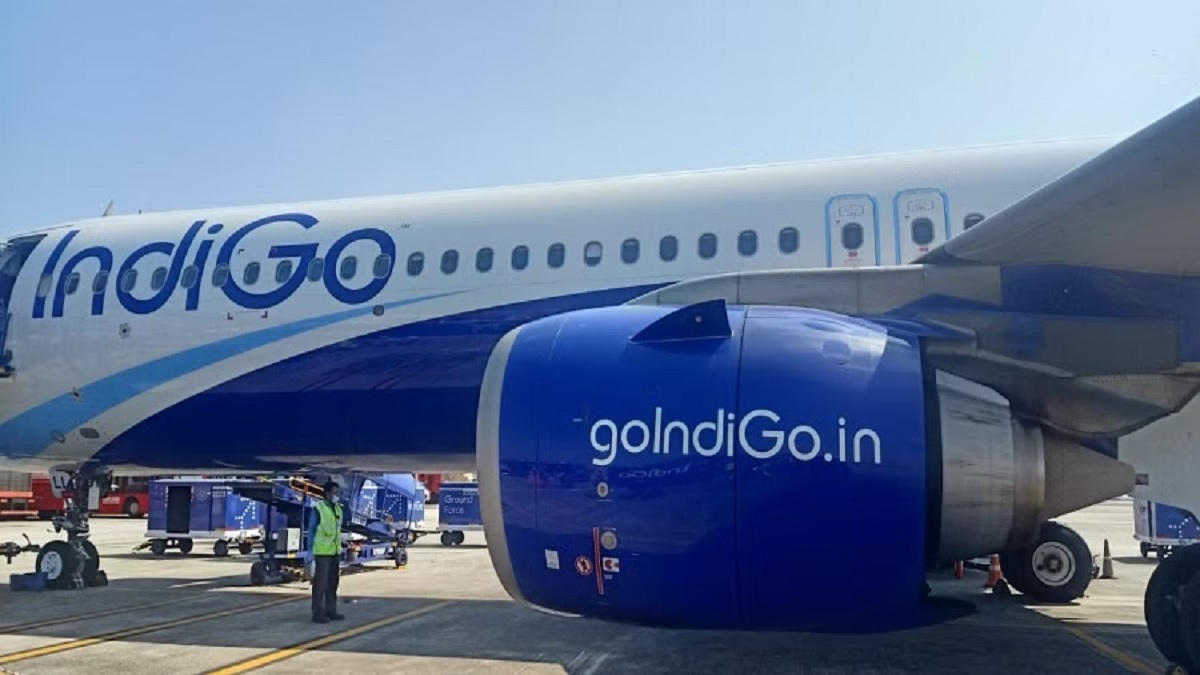Good Day Readers, Today a news has come stating that IndiGo reports a profit of ₹189 crore in the September quarter, driven by the resurgence in air travel. Stay with this article to find out more about this news. InterGlobe Aviation Ltd, the parent company of India’s largest airline, IndiGo, reported a net profit of ₹188.9 crore in the September quarter, marking a significant improvement from the ₹1,583 crore loss incurred during the same period the previous year. This positive turnaround can be attributed to the revival in air travel. During the same period, the total income increased by 20.6% compared to the previous year, reaching ₹15,503 crore. It’s noteworthy that this improvement occurred in a quarter that is typically considered challenging for the travel industry.

In fact, since its initial public offering in November 2015, IndiGo has reported a net profit in this quarter only twice, specifically in 2016 and 2017. IndiGo’s performance exceeded expectations; however, the company has expressed concerns about a significant capacity shortage in 2024. This shortage is attributed to problems with Pratt & Whitney engines, which are installed on its A320 neo and A321 neo aircraft. In July, Pratt & Whitney announced the need to inspect 1,200 engines worldwide to address a concern related to the metal used in manufacturing PW-1100G engine components. IndiGo operates 150 of these aircraft, but it remains uncertain how many of them will be impacted by this issue. As per our current assessment, these expedited inspections and additional shop visits are expected to have a more detrimental effect on our operational fleet starting from Q4, commencing on January 1, 2024.
IndiGo logs ₹189 cr Profit in September Quarter
This is likely to result in a higher number of aircraft being grounded. While we are uncertain about the exact number of aircraft that will be affected, the inspection process is estimated to span a duration ranging between 250 to 300 days to cover all the engines that will be subject to recall. Chief Financial Officer Gaurav Negi conveyed this information during a conference call with analysts following the earnings report. The airline had previously grounded 40 aircraft due to prior problems with Pratt & Whitney engines.
In response to the impending capacity shortage, they have taken various measures to mitigate the impact. This includes retaining 14 A320ceos (current engine option) in their fleet, extending lease agreements, reintroducing 36 aircraft, and arranging damp leases for two aircraft on the Istanbul route. Additionally, they have initiated damp leases for another 11 aircraft, which will commence operations this month. The airline is also in the process of finalizing leases for an additional 12 A320ceos from the secondary market, with deliveries expected to begin in January 2024. In a damp lease arrangement, an airline acquires aircraft from a lessor along with some of the necessary crew.
“We will continue to explore options for additional capacity in the secondary markets. We reiterate our capacity addition guidance for FY24, which is expected to be greater than the mid-teens, and we maintain confidence in our long-term capacity plans,” Negi emphasized. While lease costs for secondary or used planes have slightly increased, IndiGo is optimistic about offsetting these costs due to high demand and expected compensation from Pratt & Whitney. Older aircraft tend to result in higher operational expenses because they are less fuel-efficient, consuming more fuel. Negotiations are ongoing with Original Equipment Manufacturers (OEMs), primarily aimed at acquiring spare parts, with the primary goal of minimizing aircraft downtime (AOG).
Additionally, discussions are underway regarding compensation to ensure that it remains cost-neutral,” Negi further explained. Analysts are cautioning that IndiGo may need to implement a higher fare structure as it faces challenges in capacity expansion. “While IndiGo’s Q2 profitability is an accomplishment, concerns arise as the airline strives to maintain its capacity guidance, particularly with the lower RASK and uncertainties regarding grounding due to engine issues in Q4-FY24,” said Ameya Joshi of Network Thoughts, an aviation consultancy. RASK, which stands for Revenue per Available Seat Kilometer, is an essential performance metric for airlines.
Joshi added, “Given that wet leases are somewhat more expensive, the airline will have to raise its yields to offset the added costs, which can be challenging in a scenario where demand isn’t growing rapidly, but costs are.” During the September quarter, on average, IndiGo added six aircraft each month, increasing its total fleet strength from 316 to 334 compared to June 30. The airline also increased the number of owned aircraft from 14 to 16 in the previous quarter, with 316 on operating lease and two on wet lease with Turkish Airlines, involving the leasing of an aircraft along with its crew. This marks the fourth consecutive quarter of net profit for the airline, with a cumulative net profit exceeding ₹5,600 crore since October 2022.






